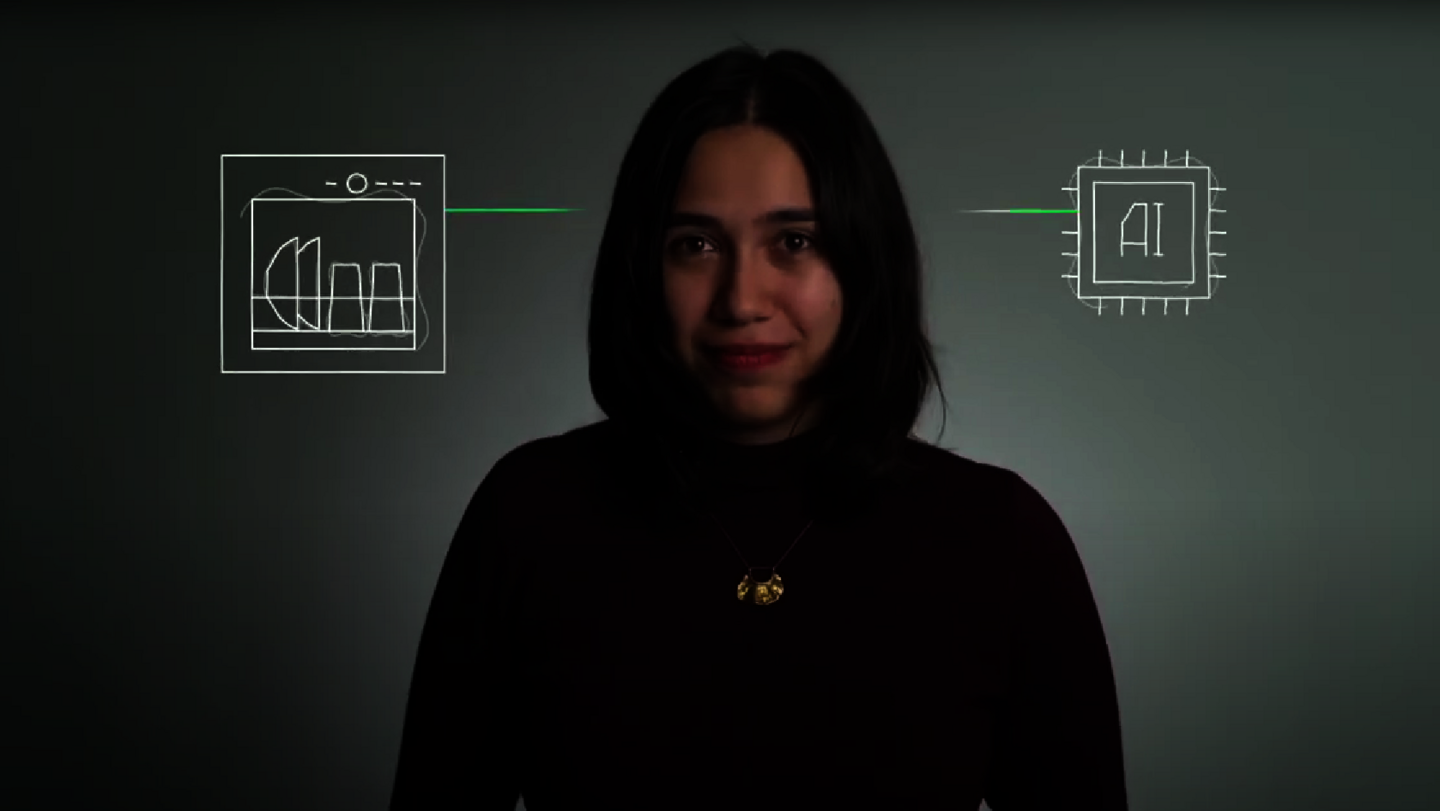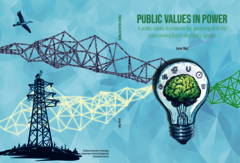
Responsible use of AI in the electricity market
“AI can help prevent the electricity sector and society from becoming part of a bad horror movie script, but only if we prevent AI from becoming a horror story itself,” writes TU/e researcher Irene Niet in her dissertation. She investigated how we can integrate AI into our electricity systems without losing sight of important societal values.
The PhD candidate, who is defending her dissertation today at the Department of Industrial Engineering & Innovation Sciences, has a background in European studies and political science. This sparked her interest in the energy transition from a governance perspective. “In the energy world, choices are made that directly affect people,” she explains. “We saw this clearly when energy prices rose due to the war in Ukraine. The digitalization of the electricity sector once again puts such crucial choices before us, and in making those we often don’t take sufficient account of the consequences for society.”
In her research, Niet looked at ways to organize the electricity market in such a way that it aligns with the values that we consider important as a society. “AI is playing an increasingly important role in public domains, but remains abstract for many, just like electricity,” she says. “Yet these two abstract concepts have a huge impact on our daily lives. This fascinates me.”
Possibilities and risks of AI
According to Niet, AI is often presented as the solution for the energy transition: it can bring about more sustainable, efficient, and accessible energy systems. “But that depends entirely on how we design and manage AI – if we manage it consciously to begin with,” she emphasizes.
She warns of major risks, such as cyber attacks. “Everything you make ‘smart’ becomes more prone to misuse. Smart applications are actually small doors to a critical infrastructure. We must ensure that these doors don’t provide access to the entire house and that they’re well secured.”
There are also parties that don’t want to disrupt the system, but do use it for their own gain. An example of this are commercial energy platforms: digitally connected networks of decentralized energy sources, such as solar panels, wind turbines and batteries, houses, and appliances, controlled by smart algorithms. These systems offer benefits, such as balancing supply and demand and preventing peaks in energy use. But they can also be used to maximize profits and influence energy prices.
Even without malicious intent, errors can occur in complex AI-driven systems, with potentially serious consequences. “It’s vital that the systems communicate with each other flawlessly, because any kind of miscommunication comes with risks,” Niet warns.
Values as a foundation
According to Niet, to properly set up AI systems in the electricity sector it’s crucial they’re based on the right values. In her dissertation, she defines a number of core values, including affordability, equality, and fairness. “Technologies are developing at a rapid pace, so trying to contain them makes little sense. But if we take our shared values as a starting point, we can create regulations that are future-proof.”
She proposes not to focus on the technical means, but on the goal we want to achieve. “We should be able to reject an AI system that doesn’t contribute to a reliable energy system on that basis,” she says. By placing values centrally, there’s room to continuously test and adjust systems, regardless of technological developments.
Political discussion
In her research, Niet focused on two central questions: Which values are important now that digital systems and electricity systems are increasingly converging? And how do different players in the Netherlands and Europe deal with these values? In her dissertation, she shows that there are a number of core values that different actors consider essential for future energy systems. However, consensus on which values should be prioritized is often lacking. Moreover, actors can strategically interpret the exact nature of a certain value and what’s covered by it. Even if there’s agreement on what’s important, there’s still plenty of room for political discussion.
Part of her dissertation focuses on the question of how values are currently integrated into policy at the European and national levels and how actors deal with this. What Niet observed is that actors rarely claim that a certain value is unimportant. However: “You can claim that all values are equally important and should be protected, but resources are limited. And sometimes you have to deal with conflicting values, which means you still have to make choices,” Niet explains. Actors also adjust the scope of the value by broadening or narrowing it. “What can happen then is that you formally meet the requirements without actually safeguarding the value,” she explains.
Sustainability is a core value that offers a striking example. You can define sustainability narrowly, for example as ecological sustainability aimed at reducing CO2 emissions. But you can also use a broader definition, which includes social sustainability. Both approaches involve risks. If the definition is too narrow, certain aspects are excluded and remain undiscussed, causing social problems to disappear from view. However, if the definition is too broad, it can lead to conflicts between different priorities, making it impossible to safeguard all aspects at the same time.
The social aspect
There are many complex questions to which there are no clear answers. Niet argues for giving these discussions about public values a central place in the design of our electricity systems. “It’s often seen as a technological development, but we forget that these are techno-social systems, which should center on the social aspect,” she concludes.
PhD in the picture
What is that on the cover of your dissertation?
“On the front you see two flows – the flow of data and the flow of electricity – that come together in a system that represents important values. On the back you see society and nature, because our electricity system is always embedded in those. There’s also a stork; in our country they often make nests on transmission towers. That causes problems, so an attempt is made to move the nests. But nature can’t always be controlled; you have to learn to deal with it.”
You’re at a birthday party. How do you explain your research?
“I research regulations relating to the digitalization of our energy systems.”
How do you blow off steam outside of your research?
“I read a lot, I love to bake – I’ve baked quite a few cakes already – and I like working in the garden.”
What advice would you give to future PhD candidates?
“Make your research your own as much as you can. This was easier for me, because I worked through the university fund and not within a predefined project. This freedom gave me the opportunity to do research that really suited me and that, in my opinion, was of interest to society. In addition, it’s important to share your results, for example by giving lectures. During my PhD, I gave presentations for Studium Generale and helped out with the National AI-Course.”
What is your next step?
“I work as a policy officer at the Ministry of Housing and Spatial Planning. This may seem like something completely different, but in this capacity I’m also involved in digitalization. The built environment and our energy networks must be well connected, and there is a great need to build more houses quickly. Digitalization can help with this, provided it’s managed properly.”



Discussion